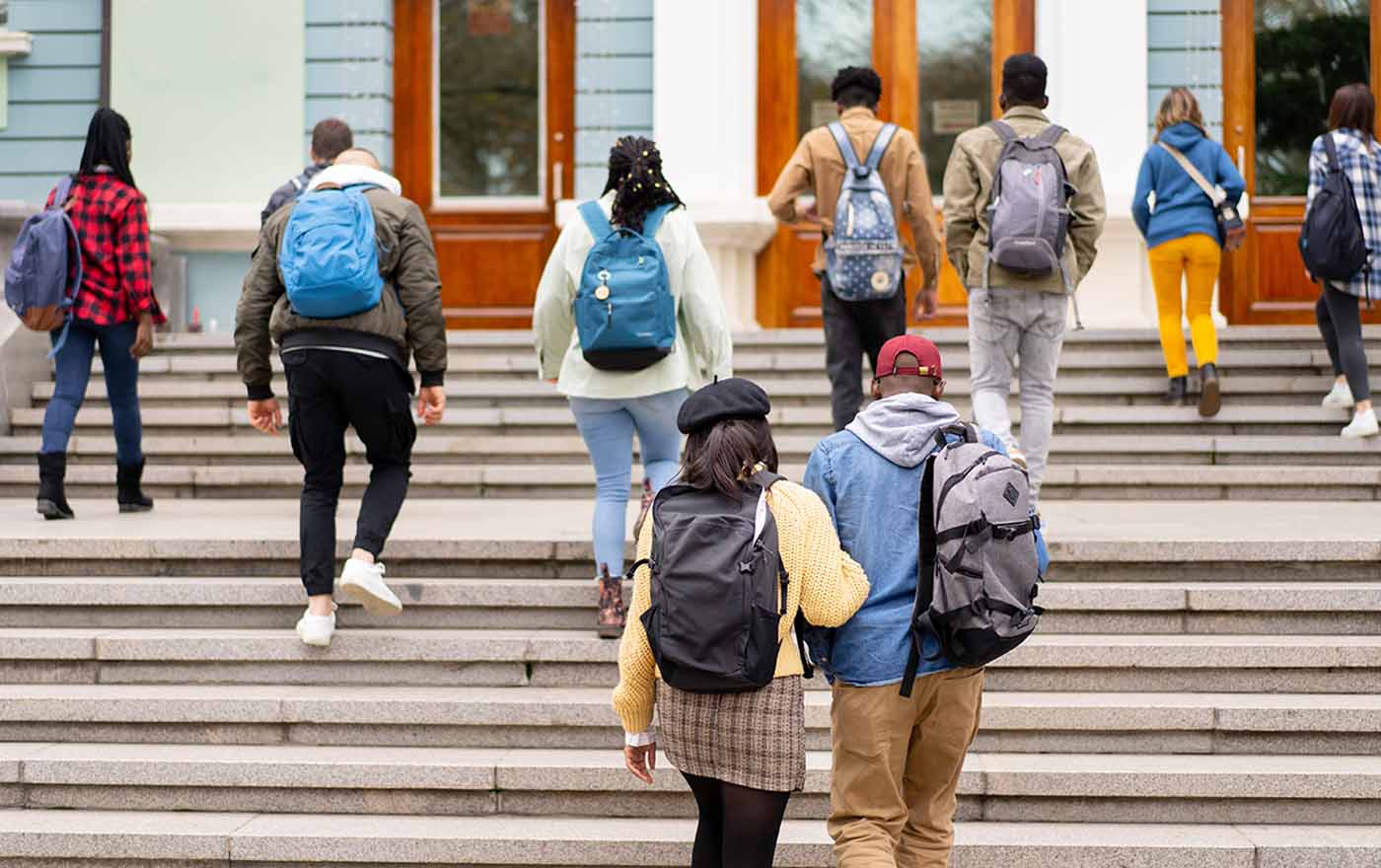
U.S. Institutions Issue Travel Advisories Amid Potential Trump Travel Ban
U.S. Institutions Issue Travel Advisories Amid Potential Trump Travel Ban
As President-elect Donald Trump’s inauguration approaches, concerns over the reinstatement of travel bans have prompted several U.S. universities to issue advisories for their international students and scholars.
These advisories aim to mitigate potential disruptions to academic and professional plans caused by anticipated immigration policies.
Travel Advisories Issued
Early Return to Campus Recommended
Prominent universities, including the University of Massachusetts Amherst, have urged international students and scholars to return to the United States before January 20, the inauguration day.
These recommendations are “out of an abundance of caution,” referencing swift policy changes during Trump’s initial term.
The UMass advisory highlights concerns about international students’ ability to re-enter the U.S. following potential policy announcements.
According to the university, students should aim to be on U.S. soil before January 20 to avoid complications at the border.
Cornell University’s Warning
Cornell University has taken a similarly proactive approach, issuing a detailed advisory about the potential expansion of travel bans.
Their statement emphasizes the risk of new countries being added to the travel restrictions list, including China and India.
This is particularly concerning for institutions with significant international student populations from these countries.

Historical Context: Trump’s 2017 Travel Ban
The travel ban implemented by President Trump in 2017 targeted several Muslim-majority nations, including Iran, Libya, Somalia, Syria, Yemen, and others.
This executive order, enacted within the first seven days of his presidency, caused widespread uncertainty and upheaval for international students, scholars, and their families.
During that period, many students were stranded outside the U.S., unable to return to their studies, while those within the country faced uncertainty about their legal status.
Universities and advocacy groups had to mobilize quickly to provide legal and logistical support to affected students.
Given the speed with which the previous travel ban was enacted, institutions are urging international students to take precautions.
Concerns for International Students
Heightened Scrutiny at Borders
Experts warn that border officials may implement stricter measures for travelers even before any formal bans are announced.
Ben Waxman, CEO of Intead, highlights that concerns about increased scrutiny are valid, as history suggests such measures can be enforced abruptly.
Risk for Chinese and Indian Students
The potential expansion of the travel ban list to include countries like China and India is particularly alarming.
These nations constitute a significant percentage of the international student population in the U.S.
If included, this could impact thousands of students and scholars currently studying or planning to study in the U.S.
Documentation Requirements
To mitigate risks at entry points, universities recommend that international students and scholars:
- Carry updated documents, including I-20 forms or DS-2019 certificates.
- Ensure their visa details are accurate and match their travel intentions.
- Provide evidence of enrollment and financial support from their respective institutions.

University Preparedness
Communication Channels
Universities leverage their international offices to provide timely updates and personalized advice to affected students.
Many have set up 24/7 helplines to address urgent queries about travel and immigration concerns.
Legal Assistance
Some institutions have partnered with immigration lawyers to offer free consultations and legal aid for students navigating visa or travel challenges.
Advocacy groups like NAFSA (Association of International Educators) also provide comprehensive resources to guide international students during this uncertain period.
Campus Support Networks
Recognizing the emotional toll of immigration uncertainties, universities also focus on mental health support.
Counselling services and peer support programs have been expanded to address the anxiety and stress faced by international students.
What Lies Ahead?
The Biden administration had reversed many of Trump’s immigration policies, providing relief to international students.
However, with Trump’s return to the political spotlight, fears of renewed travel restrictions resurface.
The situation remains fluid, and students must stay updated through reliable sources.
Experts believe that while travel bans could cause immediate disruptions, the long-term impact may extend to reduced confidence in the U.S. as a destination for higher education.
This could lead to students considering alternative destinations like Canada, Australia, and the UK.
Resources for International Students
- NAFSA: Association of International Educators: Provides detailed travel advisories and resources. (NAFSA Resources)
- UMass Amherst Office of Global Affairs: Offers travel guidance for students and scholars. (UMass Amherst)
- Cornell University International Services: Comprehensive advice on immigration and travel issues. (Cornell University International Services)
FAQ’s
1. Should international students avoid travelling outside the U.S. right now?
Limit international travel unless absolutely necessary. As advised by many universities, those already abroad should return to the U.S. before January 20.
2. What documents are necessary for re-entry into the U.S.?
Students should carry:
- Updated I-20 or DS-2019 forms.
- Proof of enrollment.
- Evidence of financial support.
- A valid visa matches their purpose of travel.
3. What should students do if they face issues at the border?
Contact your university’s international office immediately. Additionally, consult resources like NAFSA or seek legal advice through university-supported programs.
Let us help you yield your true academic potential for foreign education. To configure and discover an apt international enrolment strategy, get in touch!
- +923041111444
- info@edify.pk
- Edify Building, 3rd Floor, Madina Town Faisalabad
© 2026 Edify Group of Companies. All Rights Reserved.







